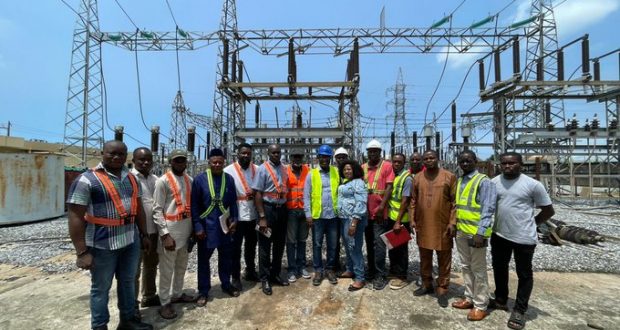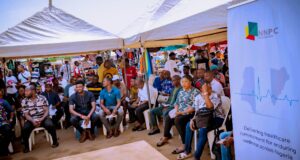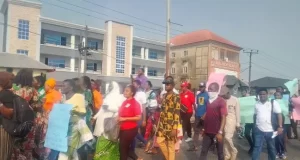
……….by Ben Ndubuwa…….
The Federal Government is to install a 60 MVA, 132/33kV power transformer in the Ojo transmission substation in Lagos to replace an aging 30MVA, 132/33kV transformer under the first phase of the Siemens/ Presidential Power Initiative, PPI project.
Though this is coming at time that lack of cooperation and other factors have been identified as reasons militating against the release or clearing of eight power transformers meant for Nigeria’s Presidential Power Initiative, PPI, at Apapa port in Lagos.
Consequently this has resulted to Nigeria’s average power generation dropping month-on-month, MoM, by 7 per cent to 4,208.6 megawatts, MW, in April 2023, from 4,528.5MW in the preceding month of March 2023, according to the computation of data obtained from Nigeria Electricity System Operator, a semi-autonomous unit under the Transmission Company of Nigeria, TCN.
The eight power transformers are part of the ten, which arrived at the port in September 2022 for clearing and installation in different parts of the nation by Siemens Energy, a German company, currently executing the PPI, under the direct supervision of FGN Power Company, a Special Purpose Vehicle, SPV, established by the government in 2018 to deliver the project in partnership with Siemens.
Engr Idowu Oyebanjo, Chief Technical Officer, FGN Power Company of Nigeria said on Wednesday in a statement that it is the turn of Ojo 132/33kV Transmission Substation to receive a 60MVA, 132/33kV power transformer under the pilot phase of the Siemen/Presidential Power Initiative, PPI intervention project.
He disclosed that the estimated completion time for the project was reduced from 178 days to 30 days, after the brainstorming session with the stakeholders.
”As power transformers and mobile substations are deployed at Apo, Ajah, Okene, Amukpe, Maryland, Omu Aran, Ihovbor, Birnin-Kebbi, Kwanar Dangora, Nike Lake, Eleyele, University of Ibadan, FUTO, Saapade, Potiskum, and Ojo in the pilot phase of this intervention, more projects (lines and substations) are being planned for implementation in the next few months” he said.
The 60MVA Siemens power transformer expected to be installed at the Ojo Transmission substation in Lagos State will take 30 days and will improve power transmission capacity in Iba, Ojo, Festac, Satelite, Ajangbadi, Alaba international market, and its environs.
Engr. Oyebanji further revealed that some of the stakeholders involved in the constructability review meeting held recently on the project include TCN Operatives in the Lagos Region, and at Ojo Transmission Substation (Hosts), the technical team of the beneficiary Distribution Company, Eko Electricity Distribution Company (EKEDC).
Others, according to him, were Oska Jo, Design and Engineering Management Consultants (DEMC), and members of the Project Management Office (PMO) of FGN Power Company of Nigeria Limited.
Oyebanji, therefore, noted that Laga Cé Power Limited is the contractor that will carry out the customs clearance from the ports, transportation to the site, installation, testing, commissioning, and energization of both equipment.
He emphasised that as a result of the importance of reducing the total outage time and ensuring the need to have an effective project implementation, the stakeholders at the meeting discussed the work programme of contractors, timelines, outage management, safety, risk factors, and mitigations.
Engr. Oyebanji further noted that consumers will not be off supply while we carry out these installations thanks to the cooperation of TCN and EKEDC who have continued to prioritize the availability of supplies to consumers.
It is said that despite the slow pace in the implementation of phase 1 of the Siemens deal, less than 70 percent of the project has been executed including the installation of the 60MVA Siemens power transformer at Apo Transmission Substation, Abuja.
The intervention by the FGN Power Company and Siemen which may be reviewed by the incoming administration is expected to address major constraints in the Nigerian Electricity Supply Industry (NESI) through the deployment of Ten (10) Power Transformers and Ten (10) Mobile substations across the country.
The implementation of projects under Phase 1 hopes to add 2000MW to the national grid, training of over 5000 engineers to operate the system network, and improved electricity access to millions of Nigerians.
 Financial Energy Review
Financial Energy Review





